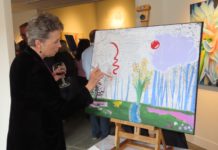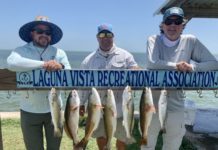The report in Angling Notes in November last focused on alerting readers of the application by MOWI (formally Marine Harvest) for a proposed new 22-cage fish farm in Ballinakill Bay, Connemara. The Department of Marine has recently announced that the application is now being processed.
Numerous correspondence of grave concern have been sent to Minister for the Marine Charlie McConalogue and Minister for the Environment Eamon Ryan in relation to the proposed licence application.
Inland Fisheries Ireland (IFI) has submitted its reasons for objecting to the licence as have Salmon Watch Ireland, Galway Bay Against Salmon Cages and many environmental groups and angling clubs throughout the country.
Commenting on behalf of the Drowes Fishery, Seamus O’Neill said: “If this licence is granted it will be the death knell for all of the Connemara rivers, especially the Kylemore river, which enters the sea at Ballinakill Bay. The decision by IFI to publish its submission in the new year is unusual and most welcome,” he said.
New scientific evidence of the detrimental effects fish farms are having on the environment is coming to light on a regular basis. In MOWI’s home country, the Norwegian government appointed 13 scientists to report on the effects fish farms are having on the wild salmon population returning to rivers.
The report by the Norwegian Scientific Advisory Committee for Atlantic Salmon is most terrifying. Of particular interest are the sections on the detrimental effects salmon farm lice and escapees are having on wild salmon populations.
In 2019, 1,393,000 metric tons of farmed Atlantic salmon were produced in Norway. It was reported that 43,000 escaped from fish farms in 2020. The mean annual number of escapees reported during the last 10 years was 168,000 salmon.
The actual numbers were two to four times higher than reported, according to the Institute of Marine Research during 2005-2011.
Studies have also shown there is widespread genetic introgression of escaped farmed salmon in wild salmon. The gene flow from escaped farmed salmon has altered the life history of wild Atlantic salmon in Norwegian rivers. Individuals with high levels of introgression from farmed fish have altered age and size at maturation.
Salmon returning to rivers each year has also diminished due to the impacts of salmon lice. This reduction threatens salmon populations in the most impacted areas and has significantly reduced the harvestable surplus for angling and marine fisheries over large parts of the country.
In 2010-2014, the report estimated that 50,000 fewer salmon returned from the ocean each year due to the impacts of salmon lice. For 2018, it was estimated there was a reduction of 29,000 salmon due to salmon lice, and for 2019 a reduction of 39,000 salmon.
The full report can be viewed at Status of Wild Atlantic Salmon in Norway 2021.
Covid fails to dampen spirits at Annamoe Fishery
Covid regulations were to the fore at the post-Christmas fly fishing outing to Annamoe Fishery in Roundwood, Co Wicklow, last Tuesday.
All the usual protocols associated with competitions were set aside for the 15 competitors. No gatherings, no cross-checking size limits, 5m distance between anglers and the fishery lodge remained closed. It was a case of bring your own sandwiches and tea and stay outside at your peg.
That said, the day was a huge success. “It was like a summer’s day” was a comment overheard. Mild temperatures, sunshine and slack winds. And the fish responded in good numbers too. A total of 34 trout were landed (and returned), with Templemore angler Pat Noonan taking the honours with six fish. Craig Sheridan caught a beauty of 3.5lb.
Annamoe Trout Fisheries is open most days. Contact Brian for fly-casting lessons and further details at 0404-45470.
*If you have an angling story to share, please send to me at angling@irishtimes.com.
Credit: Source link






























